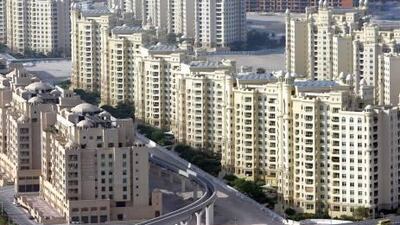DUBAI // Homeowners who fail to pay service fees to maintain their buildings should face a combination of carrot and stick, industry experts say.
Incentives could include discounts for paying on time, an online credit-card option and payment plans for those short of cash. Penalties could include denying benefits such as pool access and parking, or posting "name and shame" lists of delinquent owners - which many buildings do, although it is illegal.
"That people are going down this route tells you that the toolbox we currently have - liens and debt (and interest) - are not sufficient," Shahram Safai, head of real estate at Afridi and Angell legal consultants, said at a two-day conference that ended yesterday.
The widespread problem of non-payment has led to unkempt properties and, in one development on the Palm Jumeirah last weekend, utilities being cut off.
These consequences hit residents who have paid their fees and tenants who owe no fees, while owners who live elsewhere are unaffected.
Some indebted owners are unable to pay, others are unaware or unwilling. Many withhold because they fear the fees will be misspent, especially because owner-association bank accounts remain under the name and authority of their developer, whom many distrust.
Several owners associations have taken de facto control of their budgets from their developers and commissioned independent audits, providing a degree of transparency that has improved collection rates.
But more incentives are needed, such as discounts for on-time payment, said MPK Merali, a managing partner at Baker Tilly Merali, which conducts audits for owners associations.
"We have seen this work in other jurisdictions: if you induce them you will see better results," he said.
By contrast, even minor penalties can make people feel defensive and less willing to pay. "It is psychological."
Another incentive could be to allow easier payments via credit card online. Working out payment plans for those short on funds would also help, said Jason Reuhland, operations director of the facilities management company Emiril.
Many such firms, which provide services to buildings, have suffered late payments as a result of overdue fees.
Mr Safai of Afridi and Angell proposes legalising tougher penalties. His firm is researching options to present to Rera next month.
One approach might be to cut off services, starting with perks such as pool access and parking and escalating to essentials such as electricity.
Existing legal options lack teeth, he said. Associations may file a lien against the property of non-paying owners, that is, prevent its sale until debts are sorted. But this applies only when owners try to sell, which few are doing in the current market.
In theory, associations can take debtors to court. But without legal status they cannot file a case, and lawyer and court fees could soon exceed the amount owed.
Associations may also charge a 1 per cent fine for each month of non-payment. But the amount is too small to exert pressure, and many owners refuse to pay it anyway, said Rachel Tudor, operations manager of Place Community Managers, an association management firm.
"Owners know the owners association is in need of money to manage and maintain their building," she said. "So there is a difficult decision; does the owners association accept the money now and waive the penalties, or do they not waive the penalties and who knows when the owner will pay?"
Another method is to explain clearly the consequences of non-payment, said Alastair McCracken, chief executive of Novus Community Management, the association management firm that oversees the Palm Jumeirah development, the Golden Mile, where four buildings lost water for a few hours last week.
After the firm issued warnings of disconnection, collection rose to 55 per cent from a low of 18 per cent last year, he said, though a residual shortfall prompted the Dubai Water and Electricity Authority to act.
Novus has begun alerting owners of the consequences for every 30 days of late payment. "There was a fundamental realisation that, in fact, nobody was ever told what was going to happen if they didn't pay," Mr McCracken said.
"I think it's very important to send out a very clear message to every owner that this is what will happen," he said. "Let everyone in their buildings know that they run the risk of disconnection."

